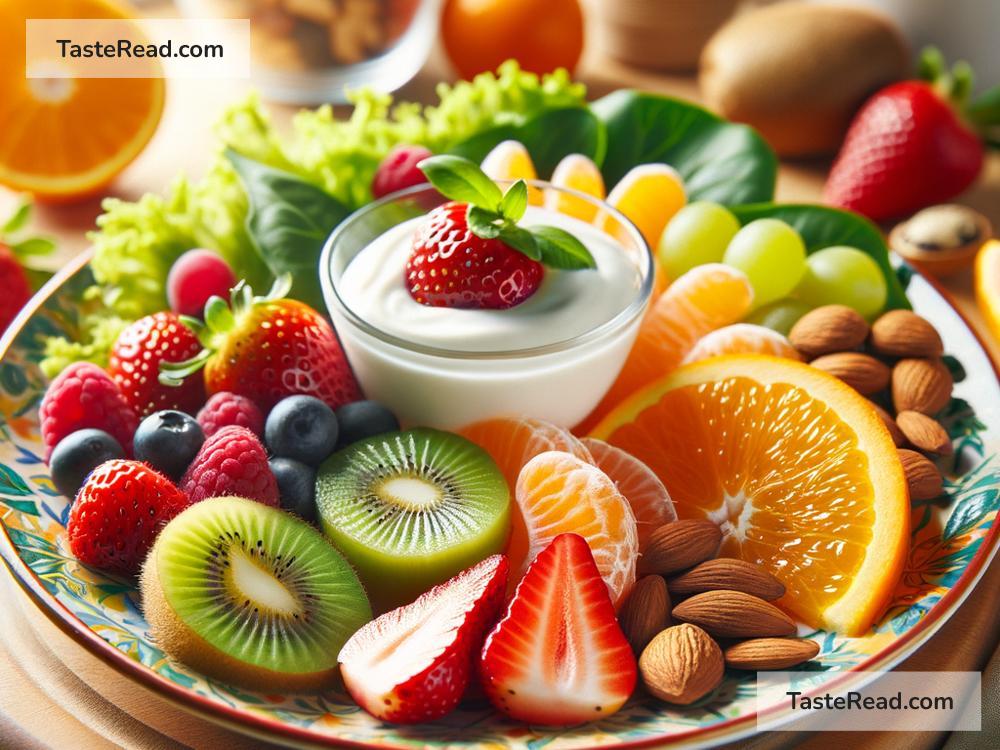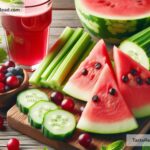Foods That Improve Tongue Health: Simple Ways to Keep Your Tongue Happy
Your tongue does so much more than help you taste food—it helps you speak, chew, and swallow! But did you know your tongue’s health depends on what you eat? Just like the rest of your body, your tongue needs proper care, and one way to do this is by eating foods that keep it strong and clean. In this blog, we will explore simple, nutritious foods that improve tongue health and help you maintain a clean, functional, and disease-free mouth.
The Importance of Tongue Health
Before diving into food choices, let’s talk about why tongue health matters. A healthy tongue should be pink in color, free of cracks or blemishes, and have no coating or strange smell. An unhealthy tongue may appear pale, overly red, or white-coated, which could signal issues such as dehydration, poor oral hygiene, or vitamin deficiencies. Your diet plays a huge role in maintaining a healthy tongue, so let’s begin with what you should eat to care for it!
1. Drink Plenty of Water for Hydration
The simplest advice for tongue health is staying hydrated. Water flushes away bacteria and toxins from your mouth, keeping your tongue clean and moisture-balanced. Without sufficient hydration, your tongue may feel dry and look coated, which can invite bad breath or infections.
Pro Tip: If plain water feels boring, you can add a slice of lemon or cucumber to give it extra flavor—and bonus vitamins!
2. Fruits High in Vitamin C
Fruits such as oranges, strawberries, kiwis, and pineapples are rich in vitamin C, which plays a vital role in tongue health. Vitamin C strengthens the tissues in your mouth and tongue and helps prevent infections like oral thrush or ulcers. It can also speed up healing if you’ve accidentally bitten your tongue or hurt it.
Pro Tip: Chewing juicy fruits can also help stimulate saliva production, which keeps your mouth clean and reduces bacterial growth.
3. Leafy Greens and Vegetables Filled with Iron
Dark leafy greens like spinach, kale, and Swiss chard are excellent sources of iron, which contributes to the health of your tongue and prevents anemia-related oral problems. Tongue issues such as soreness or swelling can sometimes be linked to a lack of iron in your diet.
Add broccoli, bell peppers, or zucchini for extra vitamins and minerals that promote oral health. The fiber in vegetables also helps scrub bacteria off your tongue while you chew.
4. Probiotic Foods: Good for Your Tongue and Mouth
Probiotic-rich foods such as yogurt, kefir, sauerkraut, and kimchi can help improve your oral microbiome. Probiotics encourage the growth of healthy bacteria and reduce “bad” bacteria that can lead to infections or coating on your tongue. This balance keeps your tongue feeling smooth and avoids issues like bad breath or yeast infections.
Pro Tip: Choose sugar-free yogurt for better results, as sugar can counteract these benefits.
5. Crunchy and Raw Foods
Crunchy vegetables and fruits like apples, carrots, celery, and cucumbers are not just nutritious—they’re also great for cleaning your tongue and teeth as you chew. The texture of these foods acts like a natural toothbrush, scraping away plaque and food particles from the surface of your tongue. On top of that, they encourage saliva production, which keeps your tongue moist and healthy.
Bonus Fact: Eating crunchy foods may also prevent tongue boredom because their variety of textures add fun to your meals!
6. Foods Rich in Zinc
Zinc is essential for healing cuts, sores, and wounds on your tongue. A lack of zinc may cause taste disorders or tongue irritation. Foods rich in zinc include pumpkin seeds, oysters, beef, cashews, and chickpeas. Adding these to your diet ensures your tongue stays strong and heals quickly when needed.
7. Garlic and Ginger for Antibacterial Benefits
While garlic and ginger are known for their pungent flavors, they’re also packed with antibacterial and anti-inflammatory properties, which keep your tongue free from infections. Ginger, in particular, can help soothe irritation or pain in the tongue while promoting blood flow for faster healing.
Pro Tip: Try chewing a small piece of fresh ginger or adding crushed garlic to dishes for a natural way to protect your oral health.
8. Eggs and Dairy for Protein
Proteins are essential for repairing and maintaining the tissues in your tongue and mouth. Eggs, milk, and other dairy products deliver both protein and B vitamins, which promote tongue cell growth and prevent soreness or cracking around the edges.
Fun Idea: Spice up your breakfasts with an omelet loaded with leafy greens, veggies, and a sprinkle of cheese to cover all tongue-care bases!
Don’t Forget to Reduce Harmful Foods
While incorporating tongue-friendly foods is important, it’s equally crucial to stay away from harmful ones. Sugary snacks and drinks, processed foods, and alcoholic beverages can irritate your tongue, cause dryness, or increase bacterial growth. Balance is key to maintaining overall oral health.
Conclusion
Your tongue is the gateway to taste, speech, and so much more, so it deserves the same attention you give the rest of your body. By eating hydrating foods, vitamin-rich fruits, crunchy vegetables, and tongue-healing nutrients like zinc and protein, you can enjoy strong, healthy tongue function. Also, remember to pair a balanced diet with daily oral care practices like brushing your tongue and rinsing with water.
So, the next time you plan your meals, remember that what’s good for your tongue is good for your body—and don’t forget to smile big, because a healthy tongue leads to a healthier you!


